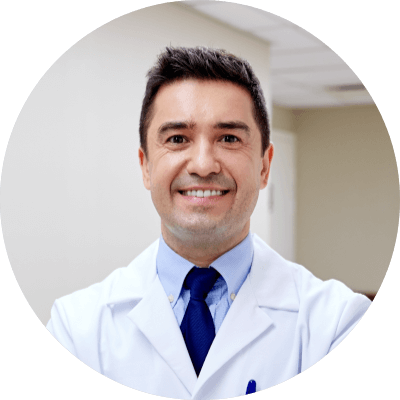The characters shown are real patients and the required consent to use their stories has been obtained from the patients and families. Photographs are for illustrative purposes only.
CARE TEAM ROLES AND
RESPONSIBILITIES
The current guidelines of care for individuals with spinal muscular atrophy suggest that care is best accomplished with the help of many specialists and primary care providers.
Because every person with spinal muscular atrophy is different, the members, as well as their level of involvement, may change over time according to individual needs and circumstances. Care will generally be coordinated by one of the doctors – usually the neurologist.1
The following is an example of a care team for educational purposes only.
Care team members may vary for individuals with spinal muscular atrophy.
Click on a care team member to learn more about their role:
Click to learn more about specific care team for infants and children:
Paving the way for awareness and support.
Biogen is working with a number of organisations dedicated to individuals living with spinal muscular atrophy (SMA).
CONNECT
to learn more about how to be part of the SMA community
The characters shown are real patients and the required consent to use their stories has been obtained from the patients and families. Photographs are for illustrative purposes only.
References
1. Mercuri E, et al. Diagnosis and management of spinal muscular atrophy: Part 1: Recommendations for diagnosis, rehabilitation, orthopedic and nutritional care. Neuromuscl Disord 2018;28(2):103-115.
2. Cure SMA. Nutrition Basics – Fostering Health and Growth for Spinal Muscular Atrophy. 2016. Available at: http://www.curesma.org/documents/support--care-documents/nutrition-basics.pdf. Accessed January 9, 2017.
3. Oleszek JL, Caire ML. Kugelberg Welander muscular atrophy treatment & management. Medscape. Available at: http://emedicine.medscape.com/article/306812-treatment. Updated April 27, 2016. Accessed April 28, 2016.
4. Finkel RS, et al. Diagnosis and management of spinal muscular atrophy: Part 2: Pulmonary and acute care; medications, supplements and immunizations; other organ systems; and ethics. Neuromuscul Disord 2018;28(3):197-207.



















































